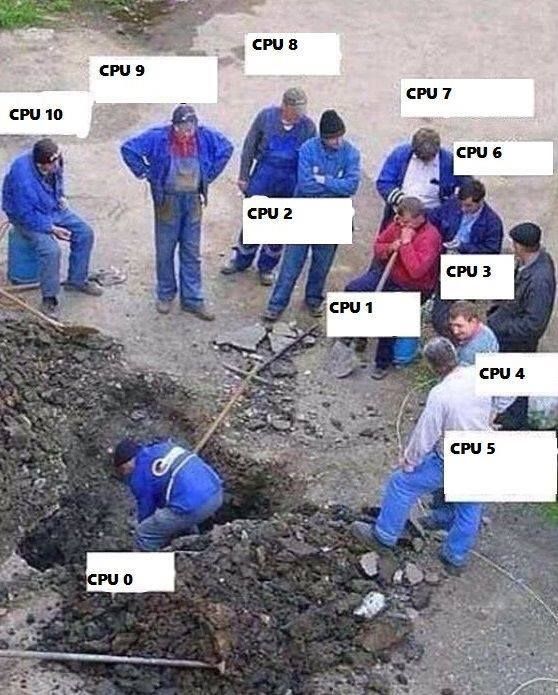We're still not true multicore. Intel have done their level best to make sure that we still rely on very few.
In Windows 8.1 if I bench my 8320 against my 8c 16t Xeon I can beat the Xeon in pretty much everything, barring a game or two.
When I take that same 8c 16t Xeon into OSX which is Nix based? I can score over double the benchmark points of a 4670k @ 4.5ghz.
AMD are just pushing to make the desktop market more like the server one, where 48 cores and more are the norm.
I don't know if AMD will ever succeed in doing so, but I tell you what kudos to them for trying. It's high time that core count actually mattered. Why on earth would you want to limit, say, a hex core CPU to two threads? that's just a chokehold.
AMD's 4-16 core Opterons were a complete success in server land. Why we're still here playing games that want 1-2 threads is just beyond me.
With 8 integer units AMD are very good with integer performance, any type of direct number crunching they are good strong CPU's.
They are actually a server CPU and much better suited to that.
Vishera is let down for things like gaming not so much because a lack of raw FP performance but because of they way its designed.
I said Vishera has 8 cores and 4 threads, thats not strictly true.
There is a reason for this "modular design" its innovative but in practical terms flawed.
Each module has 2 integer units and one or two FP threads depending on which configuration is called for.
For example.
Module Config:
#1, 2 Integer + 1 256Bit FP thread
#2, 2 Integer + 2 128Bit FP threads
#3, 1 Big Integer + 1 256Bit FP thread
The idea being that if you don't need so many threads you can have 4 fast ones, or if you need more threads you can have 8 slower ones, or you can have a combination of those.
But you have to code for that and its not that easy, whats more most compilers are setup for Intel.
A lot of times what you actually end up with is the two Integer units combined through one 128Bit FP, causing bottlenecks.
The fact is if AMD want to compete with Intel they have to design their CPU's to work in the same way as Intel.
There is just no desire for something different.
And it seems AMD have accepted that now with these Zen APU's




